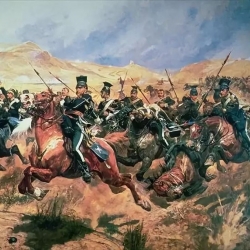February 19, 2020
The love of natural born leaders can come at a cost
 The inherent preference employers have for candidates with natural leadership ability could have a negative effect on their organisation, according to new research by Rotterdam School of Management, Erasmus University (RSM). The study, On Leading and Managing: Synonyms or Separate (and Unequal)? published in the Academy of Management journal suggests that firms tend to choose leaders over managers regardless of their culture and needs.
The inherent preference employers have for candidates with natural leadership ability could have a negative effect on their organisation, according to new research by Rotterdam School of Management, Erasmus University (RSM). The study, On Leading and Managing: Synonyms or Separate (and Unequal)? published in the Academy of Management journal suggests that firms tend to choose leaders over managers regardless of their culture and needs.
The authors note that while there is considerable overlap between the behaviours associated with leadership and management, for the purposes of this study the two styles have been clearly separated. A natural, “irrational” love for leadership means that employers automatically go for the candidate with leadership skills even though the job requires someone with management skills.
According to Associate Professor Hannes Leroy: “Decision makers are commonly advised to guard against biases against female or minority candidates, but much less attention is given to the risk of over-valuing candidates with leadership skills. There is a tendency among people to prefer and select the prototypical leader, even for a situation that really calls for prototypical managing activities.
A romantic view
[perfectpullquote align=”right” bordertop=”false” cite=”” link=”” color=”” class=”” size=””]People have a romantic view of leadership over management[/perfectpullquote]
“We found that people have a romantic view of leadership over management and this preference may come at the high cost of failing to appreciate the value of management in many situations. When a company is in crisis or significant change, you need leadership. In other situations, you need a manager, someone who hires, supervises and budgets.”
The study surveyed 703 people and found that leadership activities such as inspiring, encouraging, and motivating people, are typically evaluated more positively than managerial activities such as hiring, supervising, and budgeting.
The researchers warn that decision makers need to be aware that people tend to hold overgeneralised preferences in favour of leaders. According to this research one way to overcome this bias, is to slow the decision process and carefully consider the skills needed for the position. The seemingly unconditional love for leaders is tempered by slowing decision-makers down, overriding a relatively fast and automatic preference for leaders relative to managers.
Main image: From The Charge of the Light Brigade by Caton Woodville, Public Domain















